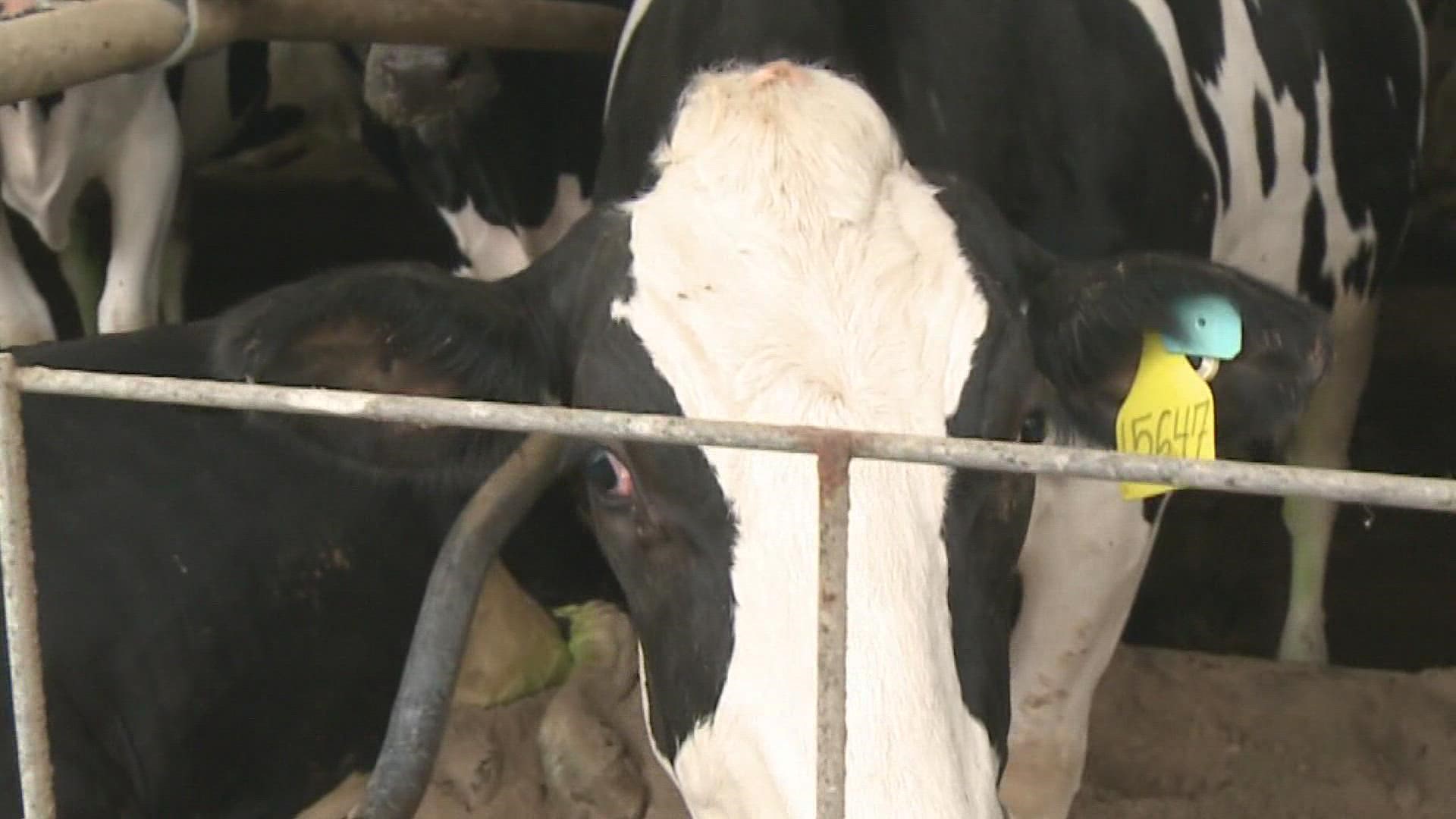KENT COUNTY, Mich. — A partnership between Consumers Energy and a Kent County dairy farm could turn cow manure into the equivalent of liquid gold.
Alto-based Swisslane Farms agreed to provide manure produced by its herd of dairy cattle to the utility company for use in a planned biodigester facility.
“It’s a win-win for everybody,” Swisslane Farms CEO Matt Oesch said Wednesday. “I’m part of the fourth generation on the farm and we’re just following in the footsteps of my great grandparents when they came here.”
Oesch’s great-grandfather, a Swiss immigrant, founded the farm, which recently attained centennial status after he purchased a 91-acre parcel of land in 1915.
Recent advances in technology persuaded his descendants to pursue the project as a viable, practical solution with regard to the farms operations.
“We’re very interested in seeing our water, our air, our land all being stewarded properly, so we can continue to raise quality food for generations to come.”
The facility, together with emerging technologies, would convert agricultural waste products into renewable natural gas or RNG, which is interchangeable with conventional natural gas.
RNG could see use in a wide range of applications, including home heating and cooking, Consumers said in a media release Wednesday.
"This project is an exciting first step in a cleaner natural gas future for our customers," Greg Salisbury, Consumers Energy's vice president of gas engineering and supply explained. "Michigan will need natural gas for years to come. We also expect the role of natural gas to evolve, and RNG provides exciting opportunities to help the environment and the economy. We're proud to work with the agricultural community to lead Michigan's clean energy transformation."
In addition to its utility, the application is seen as a two-fold win for the environment, in that it would effectively eliminate a source of methane gas emissions—the open-air lagoons in which manure is generally stored—and in turn, produce a cleaner-burning fuel.
As a greenhouse gas, methane is more damaging than carbon dioxide.
The biodigester would contain emissions within a closed system, capturing the methane, which would then be cleaned and conditioned prior to piping the gas into existing infrastructure.
The 17-million-dollar project, which still required regulatory approval at the time of publication, could break ground in 2022 and begin production in 2023.
RELATED VIDEO:
►Make it easy to keep up to date with more stories like this. Download the 13 ON YOUR SIDE app now.
Have a news tip? Email news@13onyourside.com, visit our Facebook page or Twitter. Subscribe to our YouTube channel.

